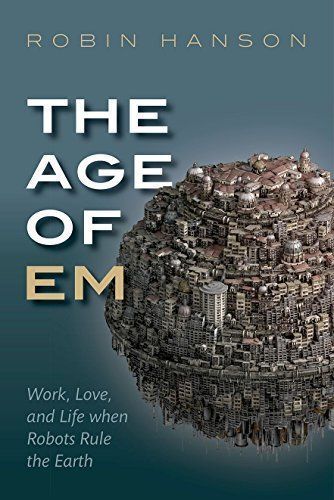
The Age of Em Work, Love, and Life when Robots Rule the Earth
Many thinkers believe that the next transformational change in human organization will be the onset of human-level artificial intelligence (the 'singularity'), and that the most likely method of achieving this will come through brain emulations or "ems": the ability to scan human brains and program their connections into ever faster computers. Taking this as his starting point, Hanson describes what a world dominated by these ems will be like.
Reviews
Gavin@gl
Misha@yagudin
Alex Buchner@alexbuchner